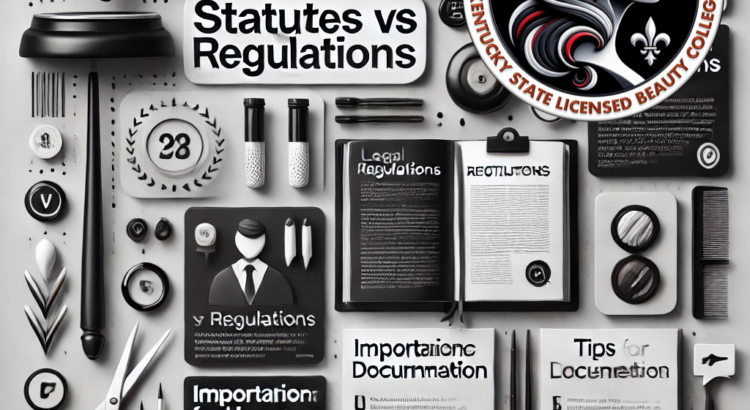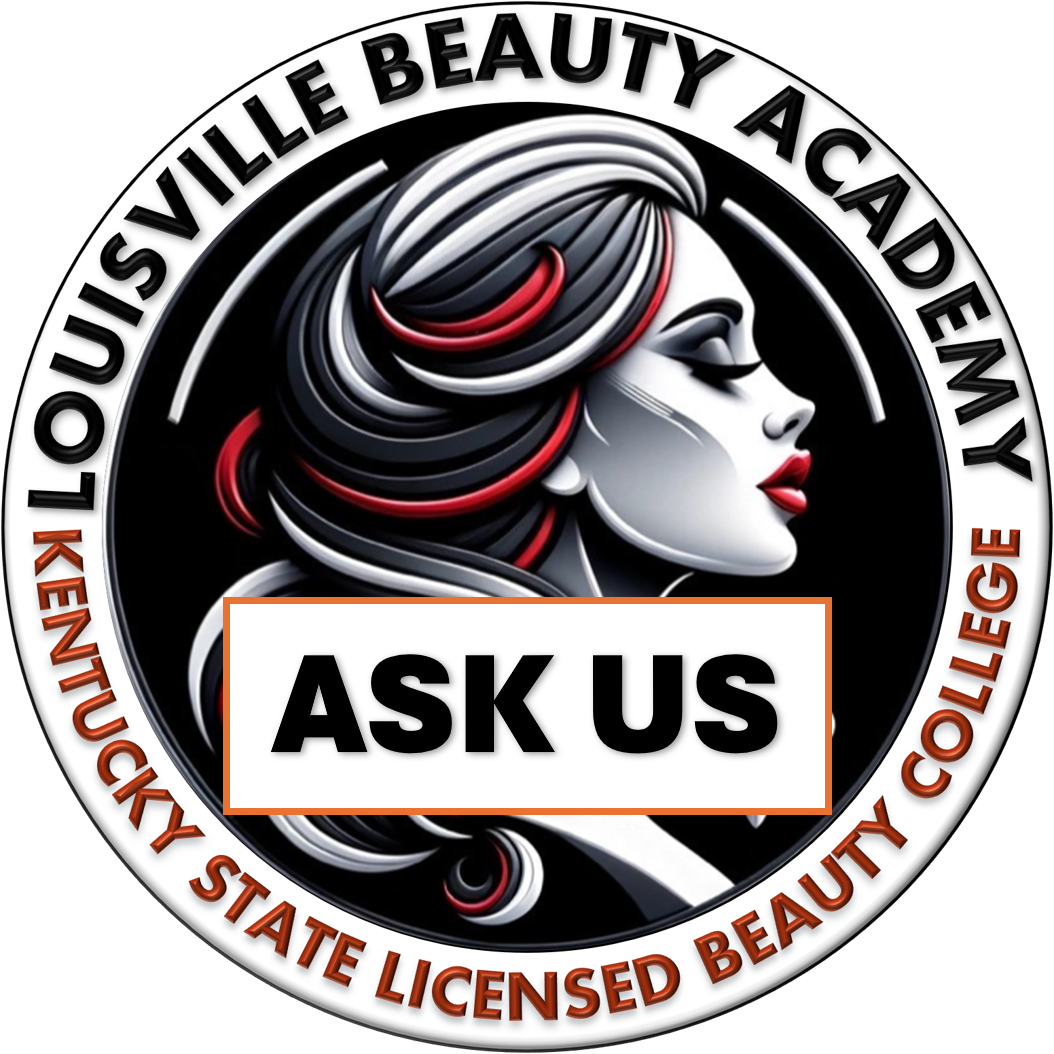At Louisville Beauty Academy, our mission goes beyond teaching the art and science of beauty. We prepare students, graduates, and licensees for successful careers in a highly regulated industry. While the beauty industry offers incredible opportunities, it also requires professionals to stay informed about regulations and legal matters that impact their work.
This article focuses on the importance of understanding legal regulations, the distinction between regulations and statutes, and how to safeguard yourself as a licensed professional in Kentucky. We also emphasize the critical role of documentation in protecting your professional integrity.
Understanding Regulations and Statutes
As a beauty professional in Kentucky, it’s essential to understand the difference between regulations and statutes:
- Statutes:
- These are laws enacted by the Kentucky General Assembly. Statutes provide the legal foundation for the cosmetology industry, outlining licensing requirements, permissible practices, and general rules for the profession.
- Example: KRS Chapter 317A, which governs cosmetology in Kentucky, defines the scope of practice, school requirements, and licensing processes.
- Regulations:
- Regulations are detailed rules created by the Kentucky Board of Cosmetology (KBC) to implement and enforce statutes. They offer specific guidelines for compliance.
- Example: 201 KAR 12:082 details the education and administration requirements for cosmetology schools.
- Statutes: Kentucky Legislature Website
- Regulations: Kentucky Administrative Regulations (KAR)
Why Documentation is Critical
In the beauty industry, documentation is everything. While verbal communication and phone calls can be helpful, they lack the permanence and clarity of written records. Here’s why documentation matters:
- Protect Yourself: Maintain detailed records of all transactions, training, inspections, and communications with clients and regulatory bodies.
- Professionalism: Emailing or texting in a clear, professional manner shows responsibility and accountability. Always address inquiries to kbc@ky.gov for official responses.
- Resolve Disputes: Written documentation can serve as evidence if questions arise about compliance, licensing, or disputes with clients or regulators.
Legal Self-Study Resources
If you want to learn more about legal matters affecting cosmetology in Kentucky, consider studying recent lawsuits involving the Kentucky Board of Cosmetology (KBC). These cases highlight the importance of compliance and understanding the regulatory landscape.
- Where to Access Lawsuits:
- PACER: Access federal and state case records (requires registration and fees).
- County Clerk’s Office: Request case details from the county where the case was filed.
- Public Legal Databases: Platforms like Justia or CourtListener provide free access to many legal cases.
Tips for Licensees
- Stay Educated: Regularly review Kentucky’s statutes and regulations governing cosmetology.
- Ask Questions: Email the Kentucky Board of Cosmetology at kbc@ky.gov for clarifications.
- Document Everything: Keep written records of all important communications and transactions.
- Be Proactive: Learn from legal cases to avoid common pitfalls and ensure compliance.
Disclaimer
This article is for informational purposes only and does not constitute legal advice. Licensees should consult with legal professionals or the Kentucky Board of Cosmetology for specific guidance related to their situation. Louisville Beauty Academy is committed to educating and empowering its students and licensees, but individuals are responsible for ensuring their own compliance with state laws and regulations.
Louisville Beauty Academy is proud to lead the way in fostering well-informed, highly skilled professionals in the beauty industry. By understanding and adhering to regulations, you can build a successful and legally sound career. For questions or more information, reach out to us or directly to the Kentucky Board of Cosmetology.






